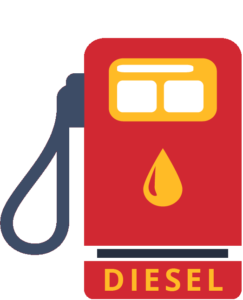Ontario’s tow truck driver training standard is being finalized and is expected to be released in the next few weeks. An official from the Ministry of Transportation (MTO) told TruckNews.com that the standard was developed in partnership with industry stakeholders.
“The Ministry of Transportation (MTO) is implementing consistent training to ensure all tow truck drivers in Ontario acquire the necessary entry-level knowledge and skills needed to safely perform their duties, and to ensure Ontario’s roads remain among the safest in North America,” the official said.
Tow truck operators welcomed Ontario’s recently announced certification program, saying it will strengthen quality and customer service and usher accountability into the industry.

“This is good for everybody, and commercial fleets will benefit,” said Joey Gagne, CEO Abrams Towing Group, adding that there were about 20 licensing regimes in the province. “You encounter a different set of rules by just driving across the street. Rules in Mississauga are different from Etobicoke, for example.”
This week, the province opened the application process for tow operators, tow truck drivers, and vehicle storage operations. The regime — including training, insurance, vehicle safety, and criminal background check requirements – will require tow and vehicle storage operators to be certified by Jan. 1. Tow truck drivers will need to have certificates by July 2024.
Municipal licensing likely to end
Doug Nelson, executive director of the Canadian Towing Association (CTA), said he expects municipal licensing will cease to exist by the end of the year.
Nelson, who is part of committee that developed the training standards, said there probably will be a grandfather clause for those who have been trained or have 10 or 20 years’ experience in the towing industry. “They will still have to be registered, have a clean CVOR, abstract and no criminal record,” he added.
Training topics
The MTO official said training topics include tow truck vehicles, safe working environments, legislation, regulations and policies, on-scene protocols and safety measures, towing techniques, roadside services, customer service and consumer protection, and safe driving practices.
“Training providers are expected to design programs that meet the minimum standards including a theoretical and practical component,” the official said. “The theoretical component can be delivered in an in-class (in-person) environment, a digital environment, and/or through a hybrid of in-class (in-person) and digital. The practical component must be delivered in an in-yard environment and must be completed in person.”
Brian Patterson, president and CEO of Ontario Safety League (OSL) said his group has been training tow truck drivers until the Covid pandemic hit. He said the OSL submitted a training proposal to the MTO six years ago. “I do not know if we will be involved in the training program,” he added.
Positive pilot program
Citing the tow zone pilot program in the Greater Toronto Area as a positive experience for customers, Abrams’ Gagne said it offers accountability and commercial carriers are better served. “Customers want to know their tow operator is qualified and knowledgeable,” he said.
CTA’s Nelson also reiterated the success of the pilot program and hoped it would be expanded throughout the province, especially for collision towing.
“It would weed out the fly-by-night operators. We have already weeded out so many good operators who were so fed up they quit. It is a guilty by association situation. The reputation of the industry has caused serious labor problems. Who the hell would want to get into it?” he said.


